Prize of Hope 2025 to Belarus Free Theatre
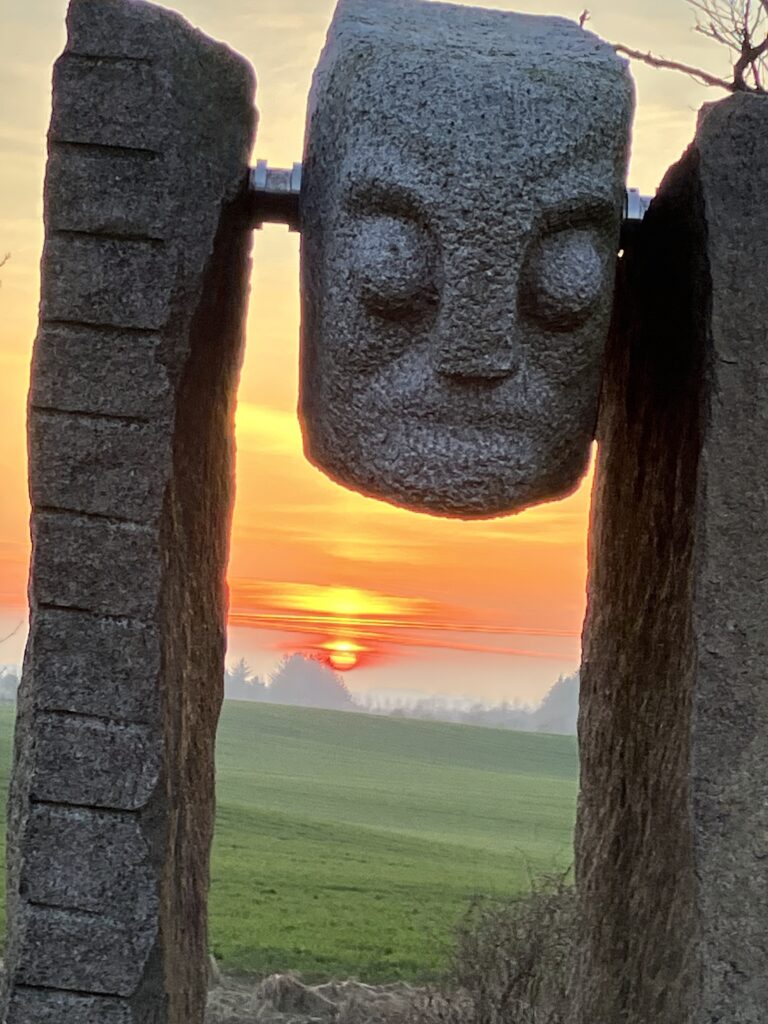
The Prize of Hope will be given to a person or a theatre who has worked for human hope; daring, loving, vulgar, serious, poetic…with sparkling energy against habitual thinking, which is the gravest threat to our culture: For a world where people use their own eyes, ears and voices.
The Prize of Hope [Håbets Pris] is awarded to Belarus Free Theatre & Natalia Kaliada & Nicolai Khalezin
The Institute for Public Theater & Dell’Arte International invites you to The Prize of Hope [Håbets Pris] at Aasen Theater in North Jutland, Sunday 8 of June 2025. The party starts at 13 and lasts with a feast dinner, awards ceremony, exhibition, music and bonfire until sunrise.
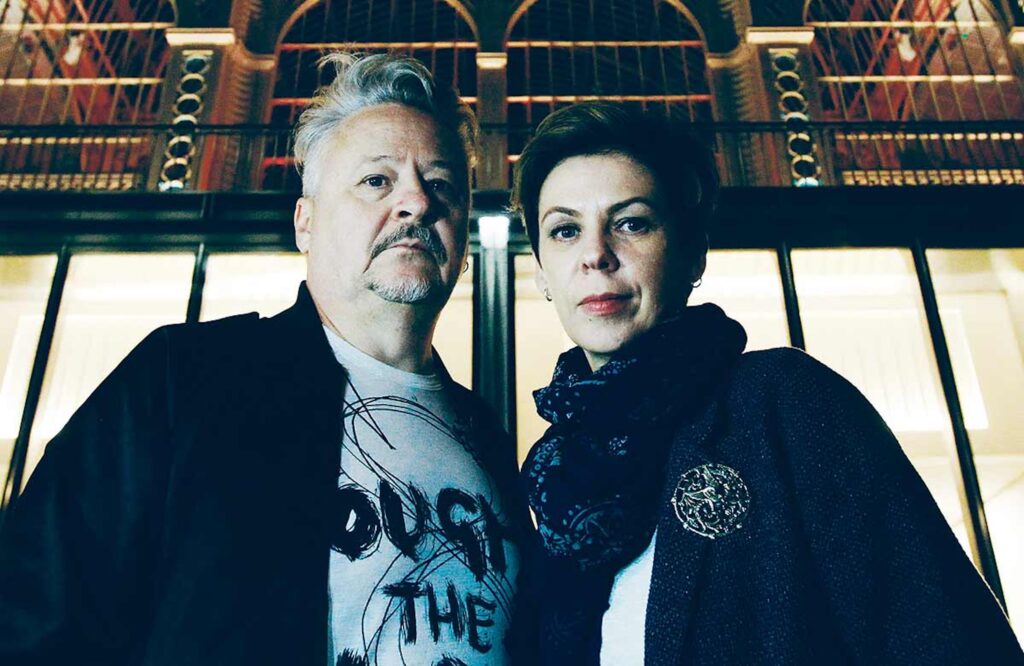
“By delving into the pain of the world, we as artists create a space where we as humans can breathe, even when there is no air.” Natalia Kaliada, Belarus Free Theatre
Belarus Free Theatre receives the 2025 Prize of Hope for a showdown with the dictatorship’s brutal clockwork – lies, manipulation, propaganda, surveillance, eavesdropping, informing, torture, murder, etc. – which smashes and perverts the demand for a free and dignified human life. Now dictatorships are spreading on all continents. It is a contagion that is everywhere. Action is needed.
For 20 years now, the Belarus Free Theatre has been fighting for freedom. Now in 2025, there are elections in Belarus and the people are pressed to the ground. The voting rooms look like empty railway station halls. Lukashenko “wins” the election with 83%?! The oppression is complete.
It is dangerous to see their performances, writes Ben Brantley, New York Times, in a report from Belarus in 2015. Therefore, spectators are asked at short notice to show up at a shopping center. They are rushed to the occasion where the performance “Time of Women” is shown:
The darkness and humidity of the prison envelop the characters in the play. Three women have experienced K.G.B.’s prison in Minsk. They tell of a captivity that will not leave them afterwards. Violence constantly gnaws at their lives, even in the light of day. They are always prisoners.
Immediately after the last line, all equipment and scenography are packed up and removed within a few minutes. It is quickly cleaned and soon you cannot see that there has been a performance here.
Subsequently, Ben Brantley adds reflectively. These productions not only entertain; they aim to awaken awareness and inspire action, adding I left Belarus full – and energized, strengthened by the proof that there is still a place on this planet where theatre can be revolutionary.
“Time of Women” describes situations that they themselves – Natalia Kaliada and Nicolai Khalezin – go through in 2002. They are arrested, imprisoned and tortured by the regime and are still marked by the injuries they sustained. At the same time, they understand that regardless of the consequences, they must act.
They found the Belarus Free Theatre in 2005. It happens secretly far out in a forest. The mobiles have been put away, they can no longer be used. From now on, life is completely different. They are in open battle against the regime. The goal is the creation of a revolutionary theater: the Belarus Free Theater.
In addition to performances, Belarus Free Theater initially also does action theater in public spaces. They rehearse situations that lead to chaos in the staged reality of the regime. It is a dangerous job. This kind of activity is not taken lightly by the regime.
In 2011, Natalia Kaliada and Nicolai Khalezin have to leave Belarus. They are close to being imprisoned as political prisoners. They manage to get out. They will now instead have to direct the remaining 50 actors in Minsk through Skype, among other things. The couple is in London and cannot come back.
The theatre develops despite this and soon works both in Belarus, in England, USA, Australia and other countries. The 10th anniversary in 2015 will be marked with no less than 10 different original productions from the Belarus Free Theatre in London and at La MaMa in New York.
After fraud with the 2020 election results in Belarus, there are many large demonstrations in Minsk. The government is hanging in the balance. Lukashenko shoots with live bullets at his own population. Murders indiscriminately. Anyone who can be suspected goes to prison. The last remaining actors from the Belarus Free Theatre are leaving the country. They now have to live as refugees in different countries, such as Latvia and Lithuania. But despite this, they continue their theatre work.
At the moment, they perform “KS6: Small Forward” in Norway and Luxembourg, among other places. It is youth theatre with a DJ and thumping rhythms. The story of basketball star Katsiaryna “Katya” Snytsina, who was the captain of the national team in Belarus and a “rock star” in her sport. After the massacre in the 2020 election, she says stop. She no longer wants to be the poster pillar for the dictatorship in Belarus. Now she shares her destiny with a new generation of youth. About staying true to yourself, being fearless, and standing up to dictators.
In 2025, the Belarus Free Theatre celebrates its 20th anniversary. Time Out writes: The history of Belarus Free Theatre is so extraordinary – an underground theatre company that was forced to flee its homeland with the threat of imprisonment or worse – that it can sometimes overshadow the fact that their work is unimaginably varied.
Natalia Kaliada says about her and the theatre’s continued work: By delving into the world’s pain, we as artists create a space where we as humans can breathe, even when there is no air.
The Belarus Free Theatre itself is the way. They show the nature of oppression in the totalitarian regime. That is also the task of art right now. Let us, together with the Free Theatre of Belarus, rise above the poison fog of dictators and oligarchs. Long live the resistance!
Congratulations Belarus Free Theater & Natalia Kaliada & Nicolai Khalezin on the 2025 Prize of Hope.
f. Institut for Folkeligt Teater * & Dell’Arte International
Lars Olsen Birthe Rosenfeldt
*)The bord of directors: Moqi Simon Trolin, chairman, theatre director, Allan Helge Jensen, actor, Lotte Augustesen, journalist, Marie Knudsen-Fogh, actor, Marie Tourell Søderberg, actor, Jeppe Groot, advisor, Selma, Nanna, Helga Rosenfeldt-Olsen, author, artist, actress.
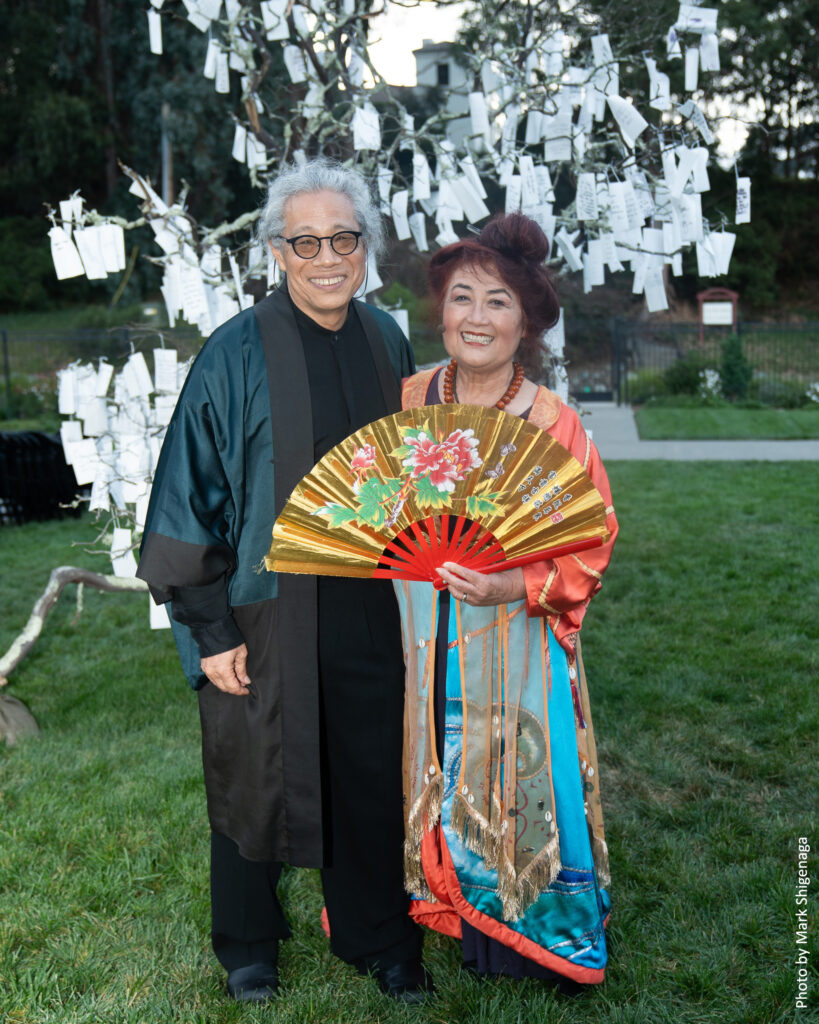
FIRST VOICE c/o Brenda Wong Aoki and Mark Izu, San Francisco: The Prize of Hope 2024 for artistic work with a comprehensive multi-ethnic perspective.
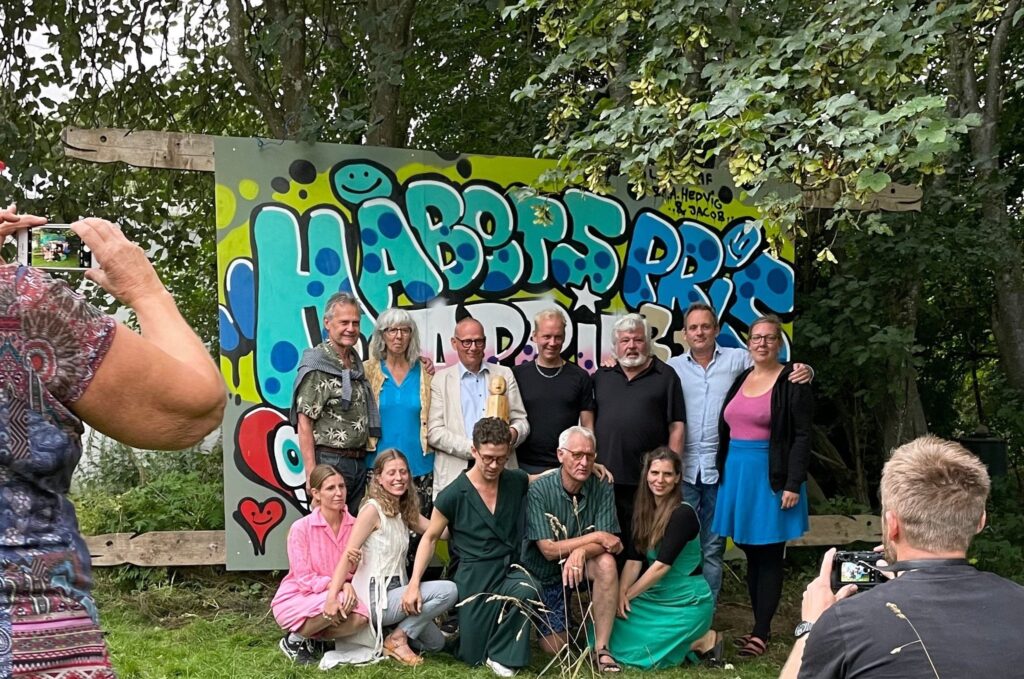
The Prize of Hope is an international award. The vision is to promote living, vital, and innovative popular art. The prize was first awarded in 1989 in Denmark and in the United States in 2008. The award is presented every other year in Denmark at Aasen Theatre and every other year in the USA at Dell’Arte International in California.
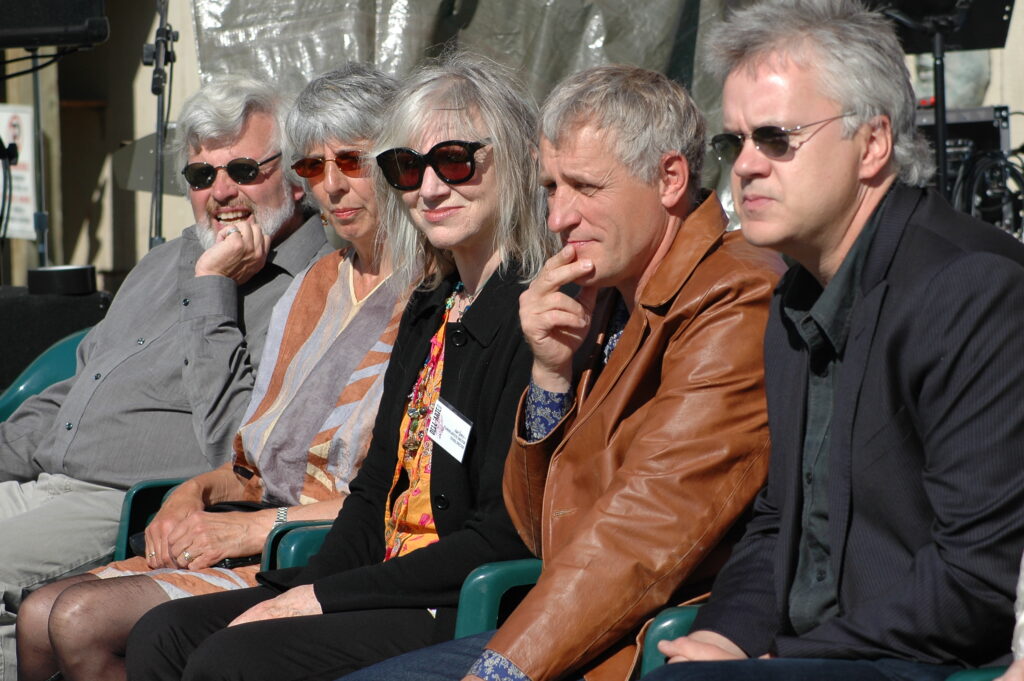
Prize of Hope for a living, popular theatre.
32. Västanå Music & Theatre 2023 and Leif and Inger Stinnerbom, Värmaland, Sweden. They create a vibrant, lively folk theater in Värmland, which people flock to.
31. Zimbabwe Theater Academy and Lloyd Nyikadzino 2022, Harare, Zimbabwe. They lead the way with young physical theatre in Africa.
30. Aprilfestival, Denmark 2021.The world’s largest theatre festival for children and young people.
29. Kitt Johnson, X-act Copenhagen, Denmark 2019Kitt Johnson is a shaman of our time.
28. UNIVERSES Theater Company 2018, New York, USA.They are a source of change, a continuing struggle for equality on the theater scene in the United States.
27. C:NTACT & Henrik Hartmann 2017. Frederiksberg, Denmark.C:NTACT creates intercultural encounters between people who otherwise would not have met: Every person carries a hope and a wish to succeed.
26. Cornerstone Theater Company 2016. Los Angeles, USA,Cornerstone Theater Company creates theater art, which brings people together regardless of race or background.
25. Théâtre du Solei & Ariane Mnouchkine 2015.“La Cartoucherie”, Paris, France. For 50 years, as an independent theatre collective, to have shared life, work and art, and together created a world class popular theatre.
24. Clowns Without Borders 2014. Bringing joy and hope to needy children in the shadow of war.
23. Christian Lollike 2013. Dramatist. Copenhagen, Denmark. For a radical reinterpretation of popular theatre with taboo as the means and dialogue as the aim.
22. Geoff & Dan Hoyle 2012, San Francisco, USA. Individually, they are amazing performers and as father and son, they are a multi-generational force for good.
21. Eugenio Barba and The Odin Theatre 2011, Holstebro, Denmark. They have created an important contribution to the cultural heritage of the world and have been a cornerstone in Danish and Nordic theatre for almost half a century.
20. David Simpson, Jane Lapiner and Human Nature 2010, Petrolia, USA, received the Prize of Hope 2010. They have created original theatre pieces about significant environmental and climate change.
19. Suzanne Osten, Unga Klara 2009, Stockholm, Sweden, received the Prize of Hope 2009 because she has worked with theatre from the perspective of the child and other vulnerable groups all her life. She is part of the reason that Scandinavian children’s and youth theatre is amongst the best in the world.
18. Tim Robbins and The Actors’ Gang 2008, Los Angeles, USA, received the Prize of Hope 2008 for leaning into the wind with their combination of contemporary immediacy, public engagement and great theatrical craft created with a profound hope for changing the course of life for better. The event was hosted by Dell’Arte International in Blue Lake, California on June 21.
17. Set designer Poul Fly Plejdrup 2007, Odder, Denmark, for his magical open theatre. The open theatre is the space of living theatre and the theatre of hope.
16. Dell’ Arte International 2005, Blue Lake, USA. They have created a physical theatre school of an international standard in the far North of California’s Redwood district, which attracts students from all over the world.
15. Finn Hesselager 2004, Nørre Snede, Denmark. For his significant contribution to the development of Danish theatre, television and film, through his teaching of an entire generation of Danish actors.
14. Bådteatret (The Boat Theatre) The Prize of Hope 2003 went to Bådteatret, with its three brave captains Tue Biering, Rolf Heim and Emil Korf-Hansen 2003 because they insist on performing. In spite of financial cuts, they continue to perform political theatre in the spirit of our era.
13. Helle Ryslinge 2002, film director, Copenhagen, Denmark. For pioneering work within Danish film, uncovering societal taboos with her microscopic attention to detail.
12. Klaus Hoffmeyer 2001, Artistic Director at the Royal Theatre Copenhagen, Denmark. For keeping his core intact whether on the student scene or at the Royal Theatre of Denmark.
11. Åsa Simma 2000, Sámi theatre and film, Sápmi. Through her art, she awakens resources hidden in the rituals and images of the ancient mountains of Sámi culture.
10. Randi Patterson 1999, Living Movement & Nyt Dansk Danseteater, Copenhagen. Founder and pioneer of modern dance in Denmark.
9. Chris Torch 1998. Intercult, Stockholm, Sweden. Founder of Earth Circus & Shikaste. A pioneer in intercultural scenic art in Sweden, the Nordic countries and Europe.
8. Grenland Friteater 1997, Porsgrunn, Norway. For twenty years of pioneering work in group theatre in Norway – in a continuous search for identity in modern post-war Norway.
7. Hans Rønne 1996. Teatret, Odder, Danmark. For his solo performances as a distinguished landmark of Danish children’s and youth theatre in the year of the cultural city.
6. Hans Hellberg 1995. Narren, Stokholm. Sweden. Founder of group theatre in the Nordic countries and its first important architect.
5. Arne Aabenhus & Asger Hulgaard 1994. Dansk Amatør Teater Samvirke. Founder and creator of Dansk Amatør Teater Samvirke (Danish Amateur Theatre Cooperation) for many years.
4. Iben Nagel Rasmussen 1992. Odin Theatre, Holstebro, Denmark. For being a pioneer of new acting in Denmark and for the performance ITSI BITSI.
3. Tage Hind 1991. Institut for Dramaturgi, Aarhus University, Denmark. For being a pioneer in the establishment of a new vision of theatre and founder of Institut for Dramaturgi at the University of Aarhus.
2. Aleksander Jochwed 1990. Theatre workshop Den Blå Hest, Aarhus, Denmark. Because the theatre breaks down barriers in the mind and between the East and the West.
1. Trevor Davies 1989. Festival of Fools, Copenhagen, Denmark, for creating a popular space for theatre and the Festival of Fools, as a cultural mediator and force to be reckoned with.

Västanå Music & Theatre 2023 & Leif & Inger Stinnerbom, Sweden
Institut for Folkeligt Teater and AASEN TEATER, BRØDHOLTVEJ 120, DK-9740 JERSLEV, Denmark
aasenteater@gmail.com, www.haabetspris.dk , www.aasen.dk, +45 61717343
